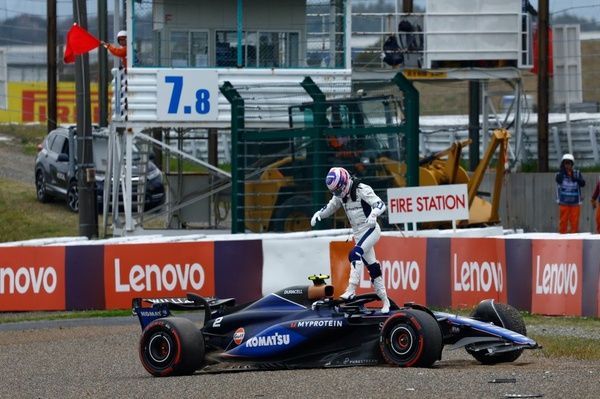Jaguar Racing's brief spell in Formula 1
When Ford's bosses originally decided that its Jaguar brand was better suited to Formula 1 than the company's famous Blue Oval, there was some scepticism about whether marketing factors within the American car manufacturer had gained more importance than technical excellence on the track

Fresh from the Ford-backed Stewart Grand Prix's maiden victory at the 1999 European Grand Prix, there were high hopes that the 'Big Cat' would be able to build on that success for its debut in 2000 and take the fight to the sport's big players at the time - Mercedes-Benz and Ferrari. That is why it spent a fortune on getting Eddie Irvine's signature on a contract.
The team's first year was not a great success, however, as the R1 proved no match for its front-running rivals. By the middle of the season, the team's chairman Neil Ressler began a restructuring of the outfit and kicked off a process that would lead to general turmoil over the following two seasons.
Ressler signed former IndyCar team boss Bobby Rahal to take over the running of the team and almost immediately there was an overhaul of its design staff. Technical director Gary Anderson was replaced over the winter of 2000 by Steve Nichols, while behind the scenes Rahal made moves to lure Adrian Newey away from McLaren.
The pair had been close friends since they worked in the United States and, although they were often seen talking at races, they both strongly denied stories that a deal was being considered. That bombshell waited until just after the Monaco Grand Prix in 2001 when McLaren boss Ron Dennis found out that Newey had actually signed for Jaguar - and he set about making Newey change his mind. Dennis won the day and the failure to conclude the deal weakened Rahal's position in the team.
Adding further doubt about Rahal's future with Jaguar was the fact that in early 2001 former world champion Niki Lauda was brought on board to help matters. The Austrian was favoured by Wolfgang Reitzle, the then head of Ford's Premier Performance Division that oversaw Jaguar Racing.
By the summer of 2001 Rahal was forced out and Lauda was left in overall charge - but things could not have gone worse as the team's 2002 car was an absolute disaster. That led to more staff changes over the course of that season and, despite a podium finish for Irvine in the Italian Grand Prix, Lauda also departed later that winter.
By this stage, Reitzle had gone too and Ford put the then relatively unknown Tony Purnell in charge of the operation, with David Pitchforth brought in as managing director. Their back to basics approach of focusing on the engineering, allied to the arrival of Mark Webber, enabled the team to achieve respectability again even if results were not easy to come by.
The team's progress was hindered, however, by the lack of money it had available to it. Ford's financial difficulties meant it could no longer bankroll the entire operation and that meant, unlike its big budget rivals Mercedes-Benz, Honda, Ferrari and BMW, there was little chance of competing at the front with the sport's finances rising - no matter how much good Purnell and Pitchforth did.
This inevitably led to fevered speculation about the team's future - with more and more suggestions that the Jaguar brand would no longer continue in F1 and would be replaced by Ford. The company did briefly consider such a scenario but amid the backdrop of increasingly harsh realities for car companies, and the spiraling costs of F1, there was no option but for Ford to pull the plug.
The news will come as a personal blow to Ford's chief technical officer Richard Parry-Jones, who campaigned long and hard with the company's financial chiefs in Dearborn to persuade them to stay in F1.
Speaking about the reaction from the Jaguar F1 staff on Friday when they were told the news, Parry-Jones suggested the route of the problem was never the competence of the men at Milton Keynes.
"I spoke to the team this morning and, to be honest, they have been fantastic," he said. "They are magnificent people, they sat there and were very professional and they listened to our decision and our reasons why. They asked a number of very reasonable questions and asked us to help them continue and complete the season.
"I was very proud of every single one of them. I had tears in my eye when I left the room..."
Be part of the Autosport community
Join the conversationShare Or Save This Story
Subscribe and access Autosport.com with your ad-blocker.
From Formula 1 to MotoGP we report straight from the paddock because we love our sport, just like you. In order to keep delivering our expert journalism, our website uses advertising. Still, we want to give you the opportunity to enjoy an ad-free and tracker-free website and to continue using your adblocker.















Top Comments